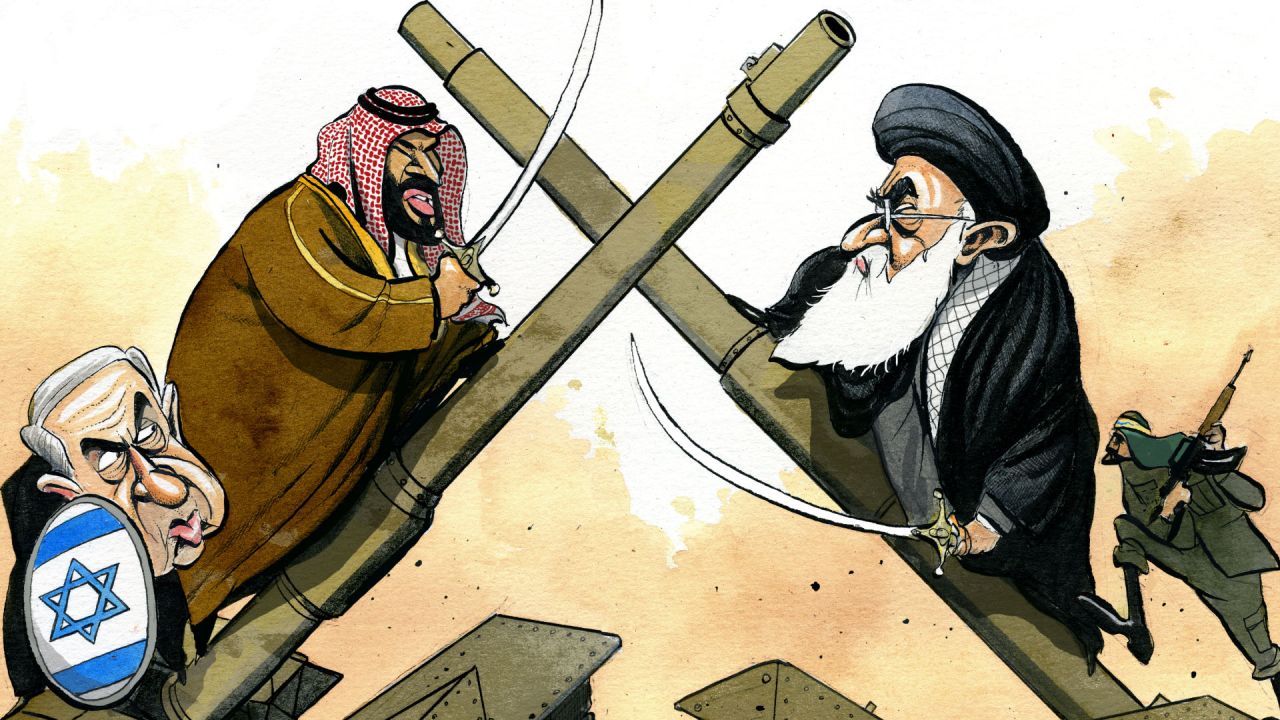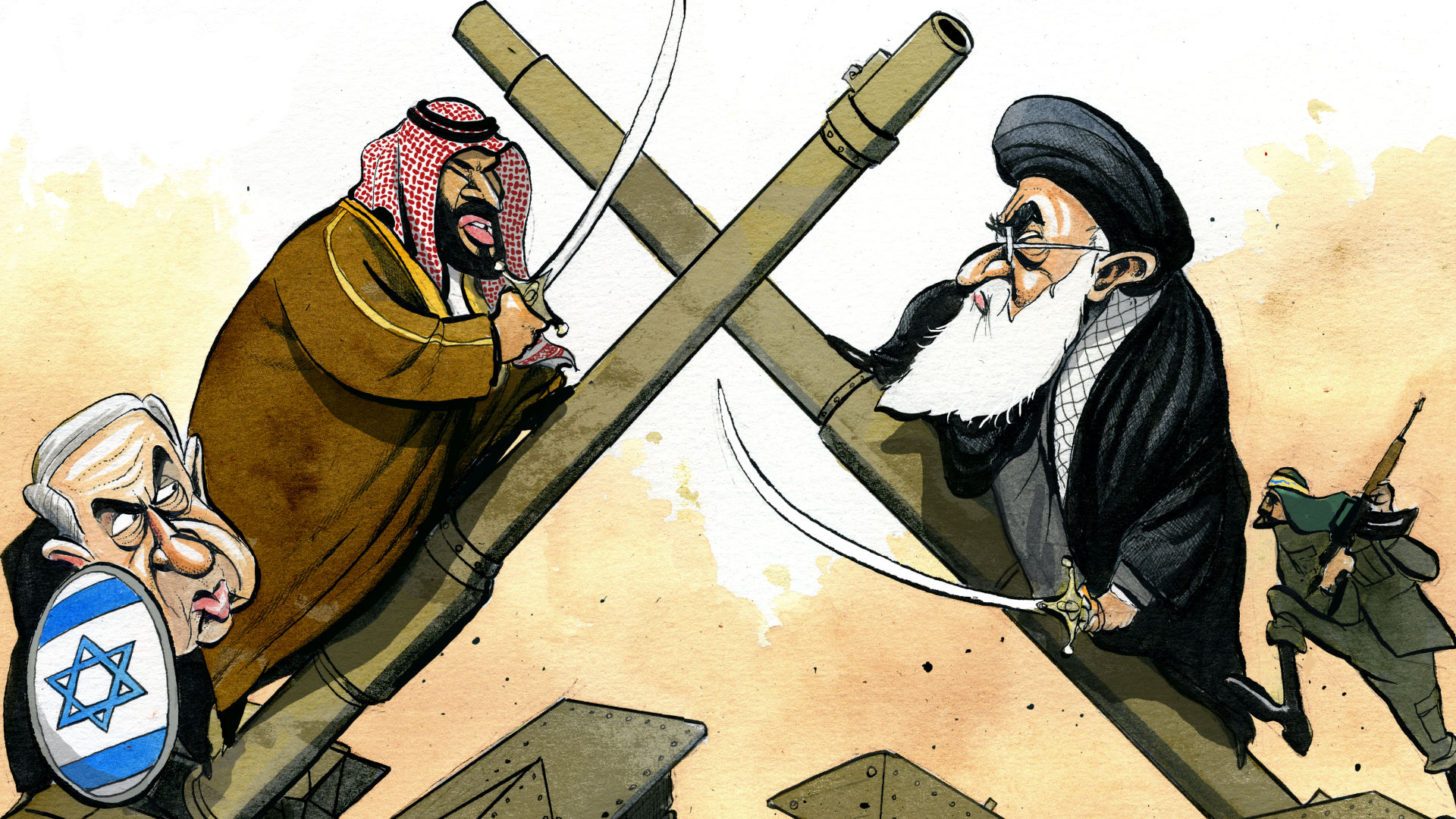Beirut, Lebanon
The secret police tail was impossible to miss but easy to lose. Two men in Saudi national dress – white thobe and chequered shemagh – drove a large black American saloon slowly behind me as I walked on the baking hot road. I turned into a shopping mall and they parked outside, not bothering to follow on foot as there was only one entrance. I went into a shop, all the way to the back, and then out through a door for staff to get to the mall’s loading bay, where a local activist picked me up in his car. We felt immensely pleased with ourselves when we got to the house of the Shia dissident we had come to see. He laughed and pointed out a nearly identical black car down the road, one man with binoculars, another on his phone. The dissident was being watched 24/7. He gave the secret policemen a wave.
The Saudi-Iran peace deal might be seen as MBS’s judgment that Israel will attack Iran sooner or later
This was the town of Al Qatif, in eastern Saudi Arabia, in 2011. Young Shia were starting to take to the streets, encouraged by the Arab Spring. They promised a ‘day of rage’. The Saudi authorities promised ‘an iron fist’. The dissident, a softly spoken intellectual, was trying to calm things down.
The Saudi authorities – terrified of losing the eastern oil fields – accused Iran of stirring up the trouble. More than a decade later, when mass demonstrations began last year in Iran, the authorities there accused Saudi Arabia of provoking the unrest. In both countries, people were angry enough without outside help. But the bitter enmity between the rulers in Sunni Saudi Arabia and Shiite Iran has been a defining fact of the Middle East for the past 40 years, deepening the sectarian divide across the region, fuelling small wars and threatening a much larger conflict.








Comments
Join the debate for just £1 a month
Be part of the conversation with other Spectator readers by getting your first three months for £3.
UNLOCK ACCESS Just £1 a monthAlready a subscriber? Log in